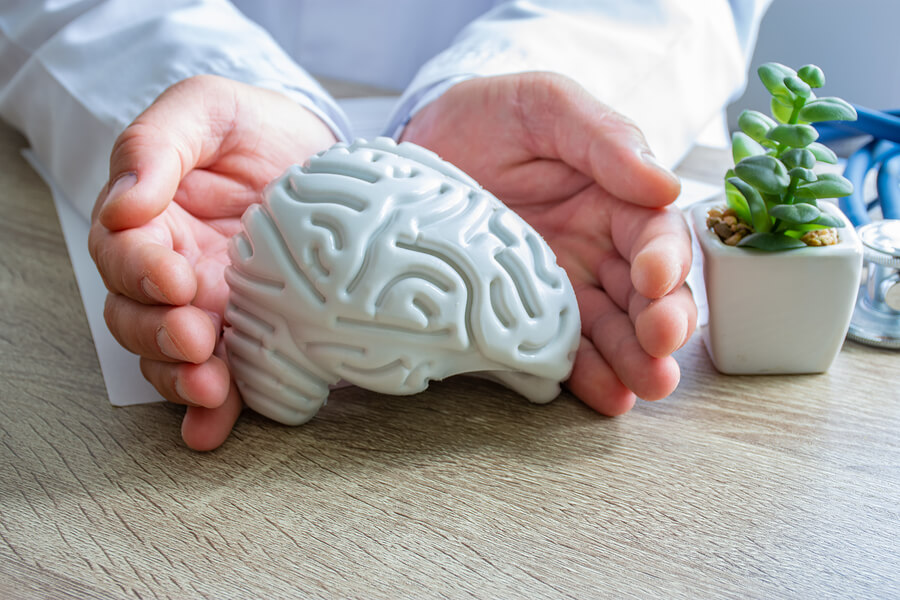You never planned to try cocaine, let alone become addicted to it. Maybe you were at a party or at a bar downtown and a friend suggested a way to keep the night going. So you took a hit, giving you a sudden, addictive rush of confidence and melting away all your insecurities. From that moment, you were hooked.
But you’ve since learned that cocaine use comes with a price. While the physical symptoms of cocaine withdrawal are hard to manage, there’s more going on inside your body behind the scenes. The truth is, cocaine has powerful effects on the brain and can cause damage after only a few uses.
How Does Cocaine Affect Your Brain?
As a stimulant, cocaine affects your body’s central nervous system. That’s part of the reason why the drug makes you feel like you have an endless amount of energy. But there’s more to it.
Cocaine causes your brain to produce more dopamine. Dopamine is a natural chemical in your brain that causes feelings of pleasure or satisfaction. Normally, there’s only small amounts of dopamine going through your brain at one time. But once cocaine enters your system, unnatural levels of dopamine overwhelm your brain, leading to the “high” that you experience while on the drug.
The problem is all that extra dopamine stops your brain cells from talking to one another. And over time, your brain builds a tolerance to this flood of feel-good chemicals, losing its ability to naturally regulate your mood and emotions. In a short amount of time, your brain requires larger doses of cocaine to hit the “high” it needs to function, trapping you in a dangerous cycle of drug abuse.
Physical Changes to Your Brain
Cocaine can actually cause physical harm to your brain, including damage to the brain’s veins and arteries. This limits the blood flow to your brain and causes chronic headaches or migraines.
Cocaine can also trigger more serious issues like blood clots and seizures. After being used for a long period of time, cocaine increases your risk of your brain developing a seizure disorder. And unlike headaches, this will take long-term treatment to fix.
Your Brain, Cocaine and Mental Health
Let’s return to the neurotransmitters in your brain responsible for helping you feel good. Besides dopamine, your brain contains other chemicals called norepinephrine and serotonin. When produced naturally, these chemicals help to regulate your mood. This all changes with cocaine use.
We’ve already talked about the increased euphoria that occurs when taking cocaine. But when the high ends, your brain enters a recovery period where there are too few neurotransmitters to balance your mood and help you feel good. This oftentimes leaves you feeling worse than before you got high, leaving you susceptible to depression.
If this becomes habit, your brain has a hard time going back into balance. Unfortunately, that increases your risk of developing a depression disorder. Cocaine also makes your brain produce more stress hormones than normal. Aside from raising your blood pressure, this can also cause psychosis, anxiety disorders, panic disorders, increased paranoia and hallucinations.
Aging Your Brain
As you age, the gray matter in their brain starts to disappear. Gray matter is linked to memory, which is why dementia is linked to loss of gray matter. Usually this process takes decades and is not guaranteed to happen to everyone. But cocaine can cause your brain to lose gray matter at a faster rate.
According to a recent study, the average brain loses about 1.69 milliliters of gray matter per year. But someone who abuses cocaine loses an average of 3.08 milliliters per year. That’s almost double. While more study has to be done, cocaine addiction has the potential to dramatically age your brain health and increase your risk for developing dementia and other memory problems.
Does Your Brain Recover from Cocaine Addiction?
The answer to this question depends on your relationship with cocaine. But if you quit, it is possible for your brain to repair some of the damage it has experienced. And the good news is, there are plenty of options for people who want to break free from their cocaine addiction.
A Healthier Life is Calling
As one of the most habit-forming substances, we know how challenging cocaine addiction can be. At Silver Maple Recovery, we offer evidence-based cocaine addiction treatment in Lorain. And no matter where your addiction has taken you, sobriety and happiness are possible.
We understand your concerns and fears when it comes to withdrawal. That’s why our expert team with an average of 25 years of local experience is here to help. Our cocaine detox services give you a private and safe environment to get the drugs out of your system. You’ll be supervised by our team while you go through the detox process, ensuring your safety and comfort as much as possible.
Sobriety isn’t easy, but it’s not something you have to go through alone. Contact us today to learn more about our cocaine addiction treatment in Cleveland. With our help, you can rebuild your life and start living without cocaine again.







